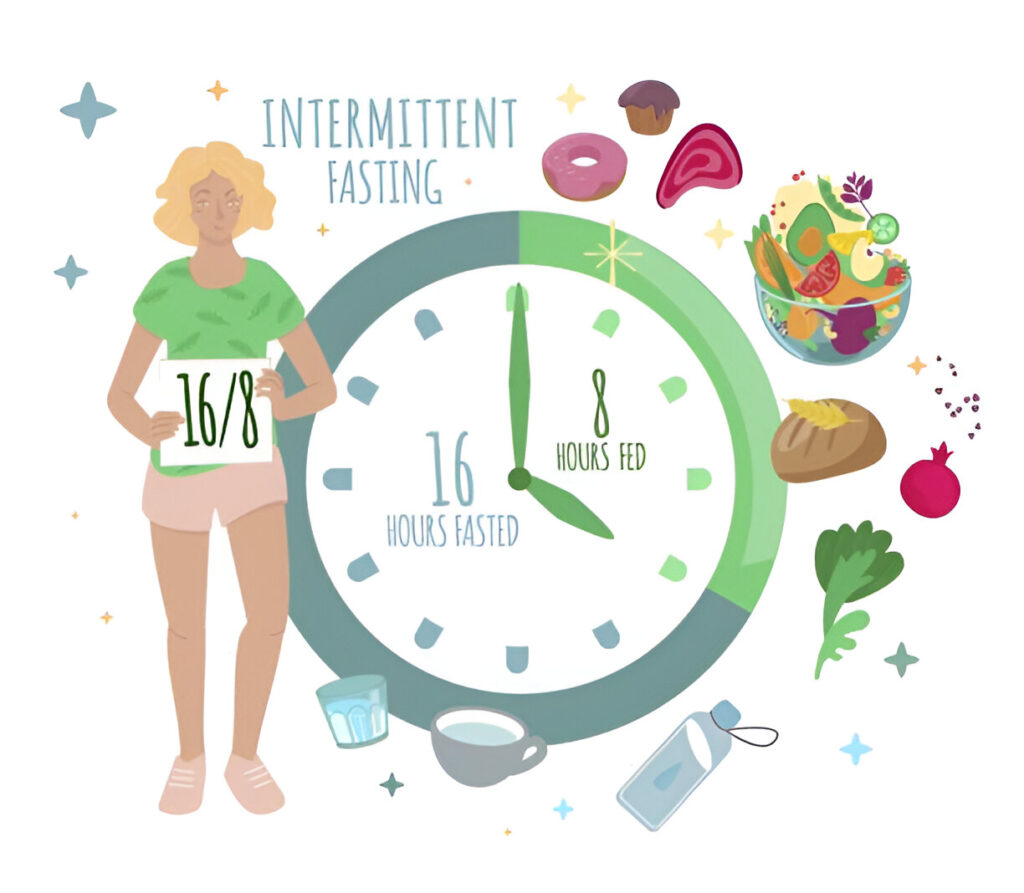
Intermittent fasting (IF) has gained attention as a potential ally in cancer prevention and treatment support. Unlike traditional diets, IF focuses on when you eat rather than what you eat, creating metabolic changes that may help slow cancer growth, enhance treatment effectiveness, and reduce side effects. This article explores:
- The science behind fasting and cancer
- Potential benefits for patients
- Different fasting protocols
- How to implement IF safely during treatment
How Intermittent Fasting May Help Fight Cancer
1. Starving Cancer Cells While Protecting Healthy Cells
Cancer cells rely on constant glucose (sugar) for energy. Fasting triggers:
- Ketosis – The body shifts to burning fat for fuel, depriving cancer cells of their preferred energy source.
- Autophagy – A cellular “clean-up” process that removes damaged components, potentially inhibiting tumor growth.
Key Finding: Some studies suggest fasting may make cancer cells more vulnerable to chemotherapy while protecting healthy cells
2. Reducing Insulin and IGF-1 (Growth Factors That Fuel Tumors)
- High insulin and insulin-like growth factor 1 (IGF-1) are linked to cancer progression.
- Fasting lowers these levels, potentially slowing tumor growth.
3. Enhancing Immune Function
- Fasting may “reboot” the immune system by clearing old immune cells and generating new ones.
- Some research suggests it improves the effectiveness of immunotherapy.
4. Reducing Chemo Side Effects
- Clinical trials show fasting can decrease fatigue, nausea, and neuropathy during chemotherapy.
- May protect healthy cells from chemo damage while making cancer cells more susceptible.
Best Intermittent Fasting Protocols for Cancer
1. Time-Restricted Eating (16:8 Method)
- Fast for 16 hours, eat within an 8-hour window (e.g., 12 PM–8 PM).
- Best for: Beginners, those in active treatment.
2. 24-Hour Fasts (2x/Week)
- Example: Dinner to dinner (or lunch to lunch) once or twice weekly.
- Best for: Those with stable weight and no malnutrition risk.
3. 5:2 Diet (Modified Fasting)
- Eat normally 5 days, restrict to 500–600 calories on 2 non-consecutive days.
- Best for: Long-term cancer prevention.
4. Fasting-Mimicking Diet (FMD)
- 5-day low-calorie (~800 kcal/day), low-protein, high-fat diet.
- Best for: Enhancing chemo/radiation sensitivity. The FMD is designed to be a short-term intervention and should not replace a balanced, healthy diet.
How to Implement Fasting Safely During Cancer Treatment
Who Should Avoid Fasting?
- Underweight patients or those with cachexia (muscle wasting).
- Diabetics on insulin (risk of hypoglycemia).
- Those with a history of eating disorders.
Safety Tips for Patients
✔ Start slow – Begin with 12-hour overnight fasts.
✔ Stay hydrated – Water, herbal teas, electrolytes.
✔ Prioritize nutrient-dense foods – Healthy fats, proteins, and veggies in eating windows.
✔ Monitor closely – Track energy, weight, and blood sugar.
Practical Fasting Tips for Cancer Patients
- Break your fast gently – Bone broth, avocado, or nuts first.
- Pair fasting with keto – May enhance metabolic benefits.
- Try “fasting before chemo” – Some protocols recommend 48–72 hrs before treatment (always consult your doctor).
Intermittent fasting shows promise as a supportive strategy in cancer care—potentially improving treatment response, reducing side effects, and slowing tumor growth. However, it’s not a standalone cure and should be personalized under medical supervision.
Next Steps:
- Consult your oncologist before starting.
- Consider working with a nutritionist specializing in cancer.
Learn more about Integrative Cancer Care
References and Further Reading
Menseses do Rêgo, A. C., & Araújo-Filho, I. (2024). Intermittent Fasting on Cancer: An Update. European Journal of Clinical Medicine, 5(5), 22–27. https://doi.org/10.24018/clinicmed.2024.5.5.345
Tiwari S, Sapkota N, Han Z. Effect of fasting on cancer: A narrative review of scientific evidence. Cancer Sci. 2022 Oct;113(10):3291-3302. doi: 10.1111/cas.15492. Epub 2022 Aug 10. PMID: 35848874; PMCID: PMC9530862.
